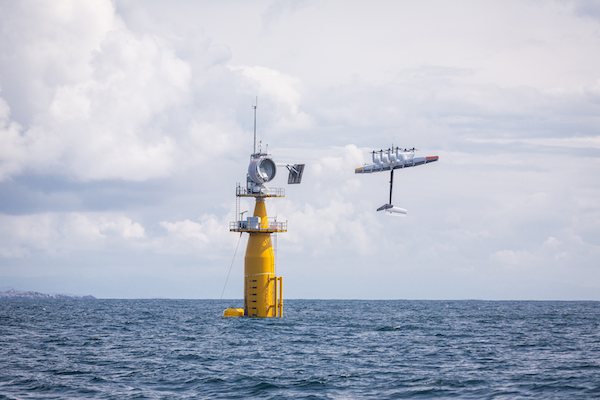Investor Royal Dutch Shell is ŌĆ£exploring optionsŌĆØ to continue developing MakaniŌĆÖs technology, the oil and gas giant stated, but would not confirm what these options include.
Astro Teller, X CEO and Makani chairman, said: ŌĆ£After considering many factors, I believe that the road to commercial viability is a much longer and riskier road than weŌĆÖd hoped and that it no longer makes sense for Makani to be an Alphabet company.
Makani had been part of X ŌĆö the new technology investment arm of GoogleŌĆÖs Alphabet conglomerate ŌĆö since 2013.╠²
It left the platform in 2019, establishing itself as an independent company with backing from oil and gas giant Shell. That year, it ran the first demonstration flights of its 600kW carbon-tether kite from a floating platform off the coast of Norway.
But it conceded further trials were needed before it focused on reducing the levelised cost of energy (LCOE) and making the technology commercially viable.
In a blog post, Makani CEO Fort Felker, wrote: ŌĆ£This doesnŌĆÖt mean the end of the road for the technology Makani developed, but it does mean that Makani will no longer be an Alphabet company.ŌĆØ
Dorine Bosman, vice president of ShellŌĆÖs wind development unit, said: ŌĆ£The combination of airborne and floating wind offers innovative solutions to some of the challenges faced in scaling up.
ŌĆ£We collaborated with Makani to utilise our offshore operational experience to deploy and test its energy-kite technology from a floating platform.
ŌĆ£We believe that Makani remains one od the leading airborne-wind technologies in the world and we are exploring options to continue developing the technology within our ▓§│┘░∙▓╣│┘▒▓Ą▓Ō.ŌĆØ
Shell's New Energies division "focuses on new fuels and power", including wind power, solar, and electric vehicle charging, according to its website.

.png)



.png)









